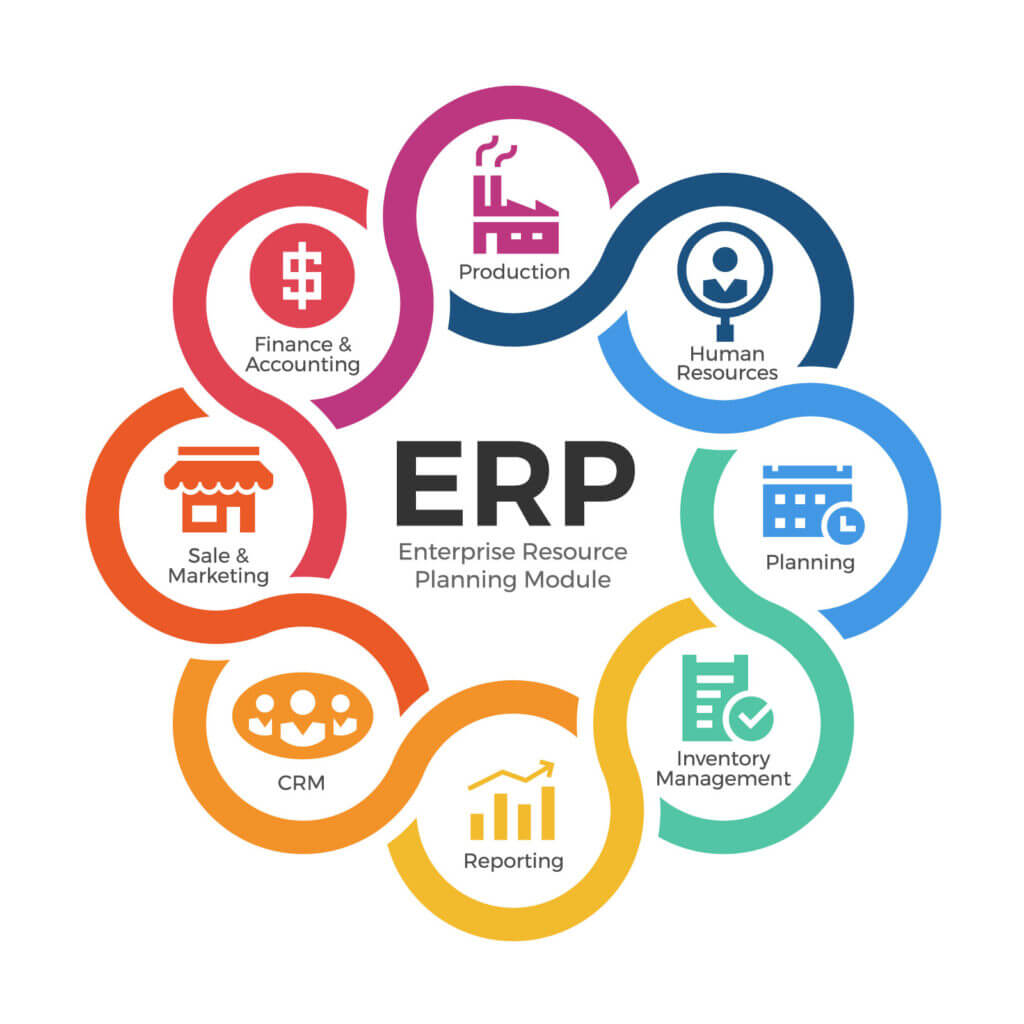Revolutionizing the Construction Industry with Cloud-Based ERP Systems
Revolutionizing the Construction Industry with Cloud-Based ERP Systems
Hey there, construction industry professionals! Are you ready to take your business to the next level? Look no further than cloud-based ERP systems. These innovative technologies are revolutionizing the way construction companies operate, streamline processes, and increase efficiency. Say goodbye to cumbersome paperwork and manual data entry, and hello to real-time updates and seamless collaboration. Get ready to transform your construction business with the power of cloud-based ERP systems!
Advantages of Cloud Based ERP for Construction Companies
Cloud-based ERP systems offer numerous benefits for construction companies. One of the biggest advantages is the ability to access real-time data from anywhere, at any time. This means that project managers, contractors, and other team members can easily collaborate and make informed decisions on the go, even if they are not physically present at the construction site.
Another advantage of cloud-based ERP for construction companies is the cost savings. With traditional ERP systems, companies often have to invest in expensive hardware and software licenses, as well as the IT staff needed to maintain and support the system. However, with a cloud-based ERP system, companies can eliminate these upfront costs and instead pay a monthly subscription fee based on their usage. This can result in significant cost savings for construction companies, especially smaller firms with limited budgets.
Cloud-based ERP systems also offer scalability, allowing construction companies to easily add or remove users as needed without having to invest in additional hardware or software. This flexibility is especially beneficial for construction projects that require a fluctuating number of team members or contractors.
In addition, cloud-based ERP systems provide increased security for construction companies. Data is stored securely in the cloud, with advanced encryption and backup measures in place to protect against data breaches or loss. This gives construction companies peace of mind knowing that their sensitive project data is safe and accessible only to authorized users.
Furthermore, cloud-based ERP systems offer improved efficiency and productivity for construction companies. With real-time data access, automated workflows, and streamlined communication tools, construction projects can be completed faster and with greater accuracy. Project managers can track progress, manage resources, and make quick decisions based on the most up-to-date information available.
Overall, cloud-based ERP systems provide construction companies with a competitive edge by offering real-time data access, cost savings, scalability, security, and improved efficiency. By adopting a cloud-based ERP system, construction companies can streamline their operations, increase collaboration, and ultimately improve the success of their construction projects.
Key Features to Look for in a Cloud Based ERP System for Construction
When it comes to choosing a cloud-based ERP system for construction, there are several key features that you should look for to ensure that you are getting the most out of your investment. One of the most important features to consider is scalability. As your construction business grows, you will need a system that can easily scale with you. This means that the system should be able to handle an increasing number of users, projects, and transactions without any issues.
Another important feature to look for is integration capabilities. Construction projects involve a wide range of stakeholders, from architects and engineers to subcontractors and vendors. A good cloud-based ERP system should be able to seamlessly integrate with other software and tools that are commonly used in the construction industry, such as project management software, accounting software, and scheduling tools. This will help to streamline your processes and eliminate the need for manual data entry and duplication of efforts.
Furthermore, data security is a critical consideration when choosing a cloud-based ERP system for construction. Construction projects often involve sensitive and confidential information, such as project plans, budgets, and contracts. A good ERP system should have robust security measures in place to protect this data from unauthorized access or cyber threats. Look for features such as data encryption, user authentication, and regular data backups to ensure that your information is safe and secure.
Additionally, ease of use and accessibility are important factors to consider when selecting a cloud-based ERP system for construction. Your system should be user-friendly and intuitive, with a clean and easy-to-navigate interface. This will help to increase adoption rates among your employees and reduce the learning curve associated with implementing a new system. In addition, the system should be accessible from anywhere, at any time, and on any device, allowing your team to collaborate and access information on the go.
Finally, consider the level of customer support and training that is offered by the ERP vendor. Implementing a new system can be a complex and challenging process, so it is important to choose a vendor that provides comprehensive training for your team and ongoing support to help you troubleshoot any issues that may arise. Look for vendors that offer 24/7 customer support, training resources, and a dedicated account manager to ensure that you are getting the most out of your cloud-based ERP system for construction.
Case Studies: Successful Implementation of Cloud Based ERP in Construction Industry
Cloud-based ERP systems have revolutionized the way construction companies manage their projects and operations. By storing data and applications on remote servers accessed through the internet, these solutions offer flexibility, scalability, and efficiency to businesses in the construction industry. Here are three case studies showcasing successful implementations of cloud-based ERP in construction:
Case Study 1: XYZ Construction Company
XYZ Construction Company, a mid-sized firm specializing in commercial projects, was facing challenges with their outdated ERP system. The on-premise software was difficult to maintain, lacked real-time data access, and hindered collaboration among different departments. After researching various options, the company decided to transition to a cloud-based ERP solution.
The implementation process was smooth, with the ERP provider offering training sessions for employees to ensure a seamless transition. Within a few months of using the cloud-based ERP, XYZ Construction Company saw improvements in project management, resource allocation, and cost tracking. Real-time data access allowed project managers to make informed decisions quickly, leading to increased efficiency and profitability.
Case Study 2: ABC Builders Inc.
ABC Builders Inc., a large construction firm with multiple projects running simultaneously, struggled with communication and coordination issues due to their scattered data silos. The lack of integration between their ERP system and other software platforms resulted in delays and errors in project delivery. To address these challenges, ABC Builders Inc. opted for a cloud-based ERP solution.
The implementation of the new ERP system brought about a significant improvement in communication and collaboration within the company. With all data stored in a centralized cloud platform, project managers could access real-time updates and reports from anywhere, improving project visibility and control. The integration capabilities of the cloud-based ERP also allowed ABC Builders Inc. to streamline their processes and automate repetitive tasks, leading to time and cost savings.
Case Study 3: DEF Contractors Ltd.
DEF Contractors Ltd., a small family-owned construction business, struggled with managing their growing projects using manual processes and spreadsheets. The lack of visibility into project progress and financials made it difficult for the company to make informed decisions and plan for the future. Seeking a more efficient solution, DEF Contractors Ltd. turned to a cloud-based ERP system.
The transition to the cloud-based ERP system was a game-changer for DEF Contractors Ltd. With features like real-time reporting, resource tracking, and project budgeting, the company was able to improve project profitability and streamline operations. The cloud-based ERP also enabled DEF Contractors Ltd. to enhance collaboration among team members, suppliers, and subcontractors, leading to smoother project execution and increased customer satisfaction.
These case studies demonstrate the significant impact that cloud-based ERP systems can have on the construction industry. By leveraging the power of the cloud, construction companies can enhance project management, streamline operations, and improve overall efficiency and profitability.
Customization and Scalability of Cloud Based ERP for Construction Projects
When it comes to implementing a cloud-based ERP system for construction projects, customization and scalability are two key factors that can significantly impact the success of the implementation. Cloud-based ERP systems offer a high level of customization, allowing construction companies to tailor the system to meet their specific needs and requirements. This flexibility is crucial in an industry where each project is unique and has its own set of challenges and requirements.
Customization allows construction companies to configure the ERP system to match their workflows and processes, ensuring that the system fits seamlessly into their existing operations. This can include customizing dashboards, reports, and modules to provide real-time insights and data that are relevant to each project. For example, a construction company may customize the ERP system to track project progress, manage resources, and monitor costs in real-time, providing project managers with the information they need to make informed decisions and keep projects on track.
Scalability is another important factor to consider when implementing a cloud-based ERP system for construction projects. Construction projects can vary greatly in size and complexity, and the ERP system needs to be able to scale to accommodate the needs of each project. Cloud-based ERP systems offer the advantage of scalability, allowing construction companies to easily add or remove users, modules, and features as needed to support the growth of their business and the changing requirements of their projects.
Scalability also allows construction companies to adapt to changes in the market and take on new projects without having to invest in additional hardware or infrastructure. This is particularly important in an industry where project timelines can be tight and unexpected changes can occur. By using a cloud-based ERP system that is scalable, construction companies can quickly adjust to new project requirements, expand their capabilities, and take on more projects without the need for major IT investments.
Overall, customization and scalability are essential features of cloud-based ERP systems for construction projects. By customizing the system to meet their specific needs and ensuring that it can easily scale to accommodate the changing requirements of their projects, construction companies can leverage the power of technology to streamline processes, improve efficiency, and drive success in their projects.
Integration of Cloud Based ERP with Other Construction Management Software
When it comes to construction projects, the integration of various software tools is crucial for seamless operations and efficient project management. Cloud-based ERP systems play a vital role in streamlining processes and centralizing information within construction companies. But how does this cloud-based ERP software integrate with other construction management software?
One of the key benefits of cloud-based ERP systems is their ability to integrate with other software applications commonly used in the construction industry. This seamless integration allows for a more comprehensive and cohesive approach to project management. For example, cloud-based ERP can easily integrate with project management software, such as Procore or Autodesk BIM 360, to provide real-time updates on project progress, budgets, and schedules.
Another important aspect of integration is the ability of cloud-based ERP systems to connect with accounting software. By integrating with accounting software like QuickBooks or Sage, construction companies can ensure that financial data is accurately recorded and reconciled with project management information. This seamless integration eliminates the need for manual data entry and reduces the risk of errors.
Furthermore, cloud-based ERP systems can also integrate with scheduling software, such as Microsoft Project or Primavera P6, to optimize resource allocation and project timelines. By syncing project schedules with ERP data, construction companies can better track progress, identify potential delays, and make informed decisions to keep projects on track.
Additionally, the integration of cloud-based ERP with construction estimating software, such as Bluebeam or CostX, can streamline the bidding and estimating process. By sharing data between these systems, companies can create more accurate and competitive bids, leading to a higher win rate and improved profitability.
Overall, the seamless integration of cloud-based ERP with other construction management software tools enhances collaboration, efficiency, and accuracy within construction companies. By centralizing data and automating processes, construction firms can achieve better project outcomes, maximize productivity, and ultimately, improve their bottom line.






